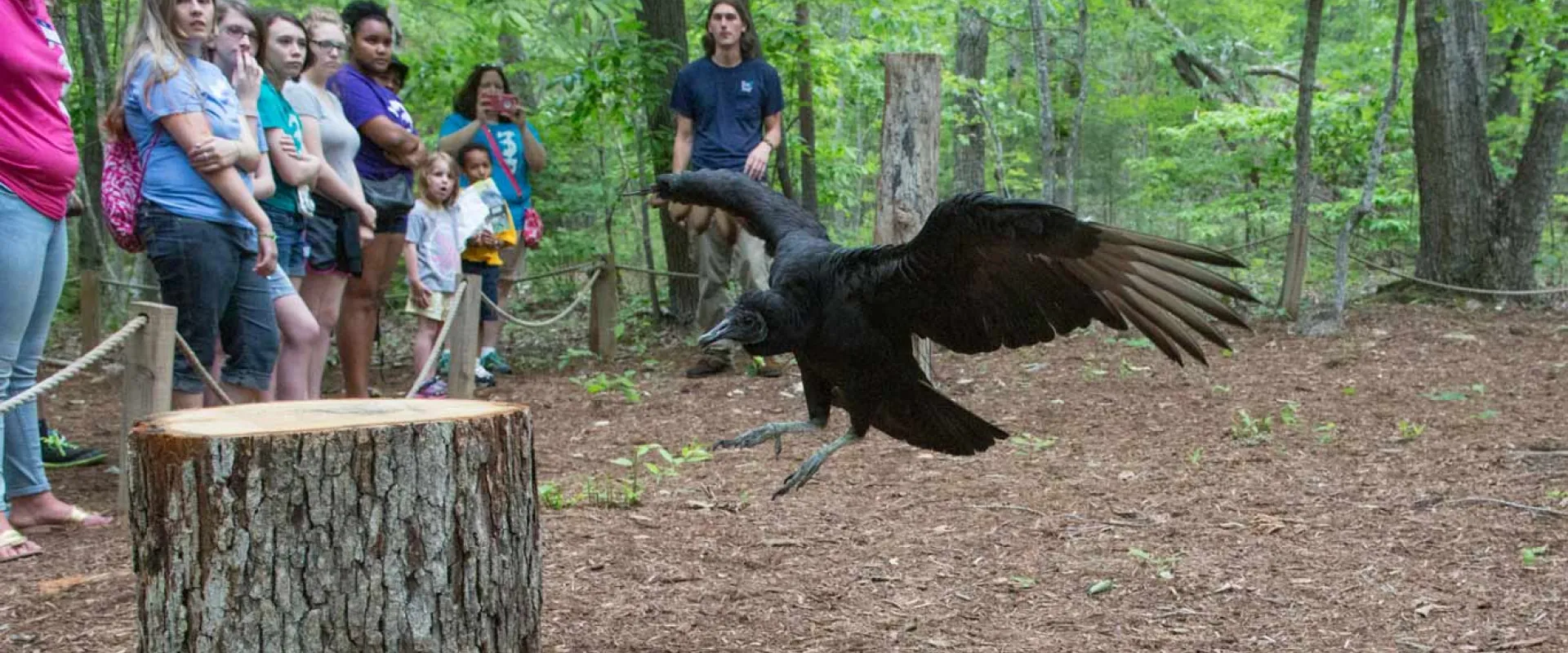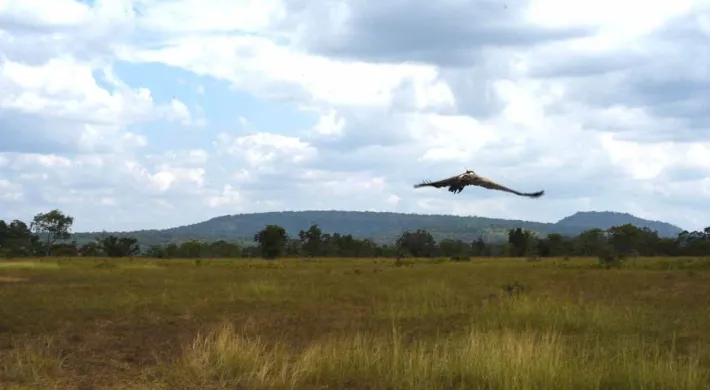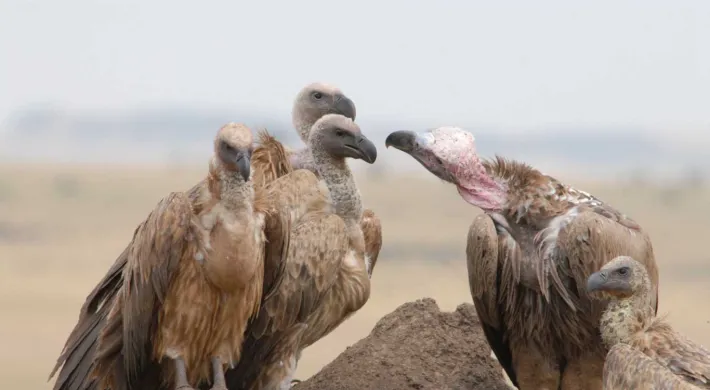Written by Corinne Kendall, PhD, Curator of Conservation and Research, North Carolina Zoo
One of the first questions people ask when I say I study vultures is “Why?”. In the United States, we don’t have the highest opinion of these scavengers; vultures are in definite need of some PR support!
Sometimes called “buzzards,” people tend to think of them as dirty, cruel birds, feeding on rotting dead animals. But this misses the bigger picture of what these birds are doing. Vultures play a critical role in their ecosystem by consuming carcasses. In fact, African vultures eat meat about three times faster than mammalian scavengers, like jackals and hyenas. This, combined with their highly acidic stomach and general lack of susceptibility to disease, means that when a vulture cleans a carcass, opportunities for further spread of disease can be greatly reduced (although this is an area that merits more study). In other words, by getting rid of meat quickly, smaller scavengers, like bacteria and flies have less time to access the carcass and spread disease. Vultures are thus one of the most efficient and effective scavengers when it comes to waste removal and disease control.
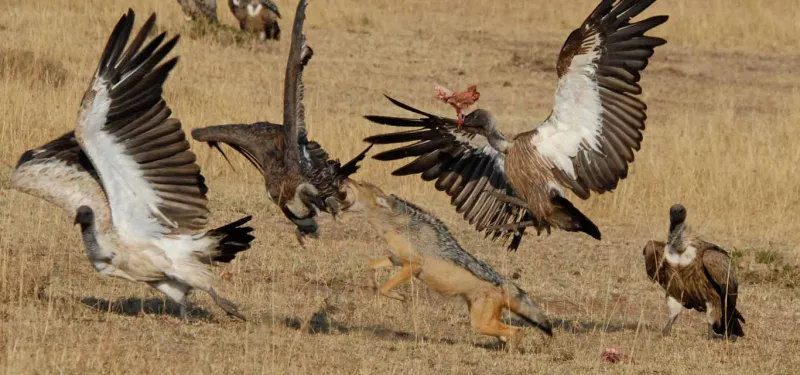
Vultures competing with a jackal for a carcass
Vultures are important, not just for disease control, but also act as a critical resource for other scavengers. Based on the research I did during my PhD, we found that animals like hyenas and jackals use vultures to find carcasses, following the birds as they land. Vultures effectively act as indicators or eyes in the sky for these land-based scavengers, giving them information about the landscape, far beyond where they can see from the ground. In fact, even early hominids (our pre-human ancestors) might have used vultures to find carrion, as well. The upright posture of these hominids would have given them the advantage of seeing landing vultures at great distance, where a carcass could be quickly discovered, and then stolen from the vultures, just like modern day hyenas and jackals do.
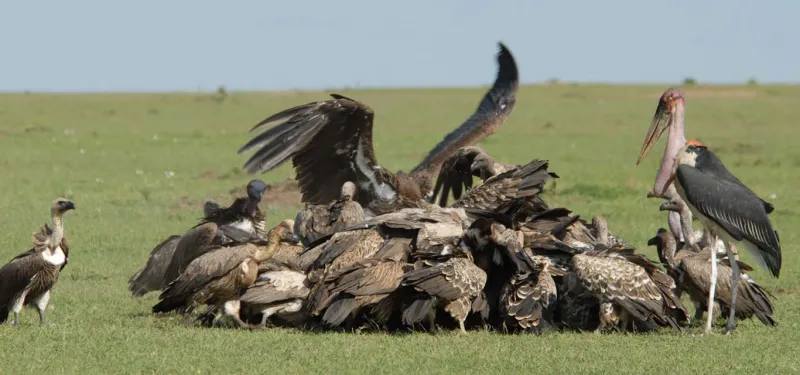
Vulture pile feeding on a carcass
While we may not have much appreciation for vultures in the United States, vultures are loved throughout much of the world. In Kenya, the Masai elders appreciated the role of vultures. One person even called them the “soap of the savannah.” They keep the environment clean! For the Masai, vultures were useful partners in finding a lost cow, as they would help to identify the location of the carcass if an animal had died. They also have significance in stories of warriors. In India, vultures have cultural significance for the Parsi and play a role in the burial process for people who have died. In Germany, detectives have even used Turkey vultures (who have one of the best senses of smell in all the animal kingdom) to help find human corpses for people who have gotten lost or been killed in densely wooded areas that might otherwise be hard to search. In ancient Egypt, vultures were valued as a symbol of femininity – they are after all fantastic parents (usually caring for one egg at a time and generally with high success at raising these to fledging when the chick leaves the nest).
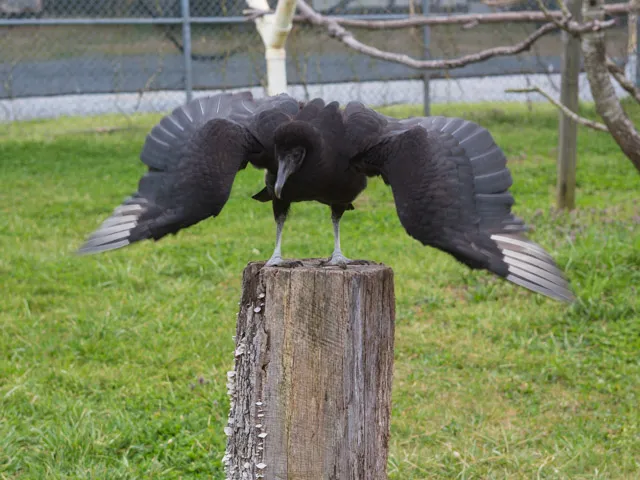
Black vulture
Vultures help keep the environment clean, have significance to cultures all over the world, and might have even shaped our own history. I would venture to guess that almost every citizen in North Carolina has seen a vulture. Black and turkey vultures are everywhere in North Carolina. You may have seen a vulture soaring overhead – with a long white strip along the lower edge of their wing for turkey vultures or with white “hands” or wingtips for black vultures – or eating roadkill right next to the street. The next time you see a vulture, consider what they do for us. It may not be the most glamorous job, but we do really need these scavengers.
